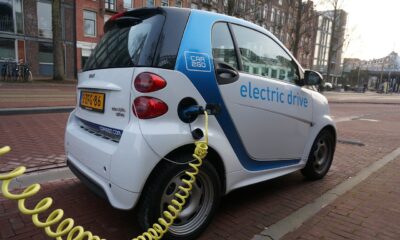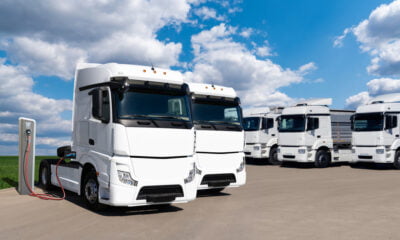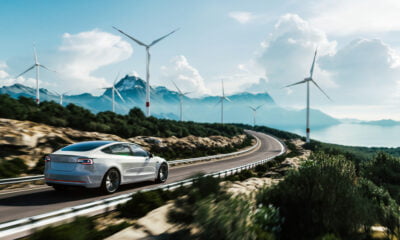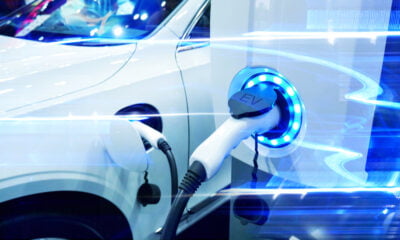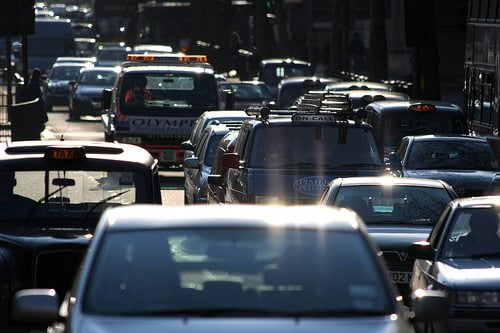

Economy
‘Unless we radically rationalise our car use, we are going to hit a wall’
When it comes to transportation, many people associate going greener with going pricier. But this isn’t always the case, as Tom Revell explains.
This article originally appeared in Blue & Green Tomorrow’s Guide to Sustainable Spending 2013.
A recent Ford-sponsored poll of 6,000 Europeans found that 54% of respondents believe that climate change is the single biggest problem the world faces today. But only 23% said they want to take efforts to change their future travel behavior to be greener.
Part of this apprehension may be something to do with the pricetag with some modes of greener transport. The Ford Focus Electric, for example, is priced from £33,500 (with an on the road price of £28,500 allowing for the £5,000 government plug-in car grant). An average Focus would could at least £10,000 less. Though the potential savings from powering up an electric vehicle (EV) with homegrown solar electricity are massive, it’s the original bill that catches the eye.
Of course, this disadvantage doesn’t fit everything. Catching the bus, or even doing some good, old fashioned walking are patently cheaper than keeping a gas-guzzling car on the road. But for many journeys, car ownership is simply more convenient.
The solution, which combines the convenience of having car with the financial prudence of, well, not having a car, is obvious. Car sharing provides a simple way for drivers and travellers to reduce both costs and environmental footprints. However, it is often overlooked.
Two companies seeking to change that are the lift-sharing platform BlaBlaCar and the 24/7 rental service City Car Club.
City Car Club parks vehicles around a number of UK cities, allowing its members to share them by booking and paying only for the time they use. Car clubs allow their members to give up their own vehicles, as they can have use of a vehicle when they need one, without the associated costs and hassles of owning one.
Vicky Shipway, head of marketing at City Car Club, explains, “A significant proportion of money spent on a vehicle is not directly related to the journeys people make – MOTs, servicing and insurance costs have to be paid even when a vehicle isn’t used.
“Making the move to a car club instantly saves on these costs as you only pay for the journey you make. When combined with the use of public transport the savings can be significant – independent research has shown up to £3,600 can be saved every year by making the move from car ownership to a car club.”
BlaBlaCar meanwhile provides a membership service that connects drivers with empty seats and long distance journeys with people who want to travel in the same direction. In this case, the benefits for both are also clear. BlaBlaCar automatically calculates how much each passenger should contribute towards petrol costs. Taking three travellers can more or less cover a motorist’s expenses, while the hitchhikers can get a lift considerably cheaper than, say, a last-minute train ticket.
Vanina Schick, brand manager of BlaBlaCar, tells the story of one member named Helen, an elegant, 50-something textile designer working in London, her husband – an artist based in a studio in Cornwall – and her weekly commute to see him.
“Helen told me that she’s been doing this for 10 years, but then a couple of months ago she heard about BlaBlaCar and straight away offered her ride”, Schick explains.
“She has since had three passengers in her car for every single trip for the last two months.”
With each passenger contributing £20, Helen can recoup fuel costs of around £120 a week, or around £6,000 per year.
According to BlaBlaCar’s figures, even someone making a more manageable weekly commute, between Oxford and London for example, could save over £1,000 a year by taking just two passengers on each journey.
And of course, this does not just apply to long-distance drivers. An average 30-mile trip to work can cost £23 per day, or £5,309 a year. Sharing the ride with just one colleague could save £11.50 per day, or £2,655 per annum. Northern Ireland’s Car Share Scheme provides a handy online calculator than can determine your potential savings.
However, there is more to the car sharing experience than this, Schick adds.
As it allows people to enjoy intergenerational conversations that tend not to happen elsewhere, there is also a social aspect – from which BlaBlaCar gets its name. “We find that once people have shared a journey together, they never stop”, says Schick.
Perhaps more important than the socialising and the lessened impact on our pockets, however, is the environmental benefit; fewer cars means less pollution and fewer accidents. Schick explains that car sharing is really about rationalising our roads.
“If you sit in a traffic jam, well, first of all it’s annoying because you’re sitting in a traffic jam. But then you look at the cars next to you and see that they are all single occupancy vehicles. It makes no sense.”
BlaBlaCar sees those empty seats as wasted assets, and all that unnecessarily burnt petrol as squandered natural capital. With globally rising populations and carbon emissions, they are indeed assets and capitals we cannot afford to waste.
“We’re seven billion people. Sustainably, one of our objectives is also to have a better quality of life for every single person on the planet”, says Schick.
“Quality of life is also about mobility. If you ascribe unlimited mobility to seven billion people, and if that translates to a car per person, that’s a catastrophe. There’s no way that can happen.
“Unless we radically rationalise our car use, we are going to hit a wall.”
Further reading:
Livin’ (Sustainably) in the City
Existing city infrastructure can be ‘reprogrammed’
Government prepares for major rollout of electric car chargepoints
Our future cities will have to be smarter and more resilient



